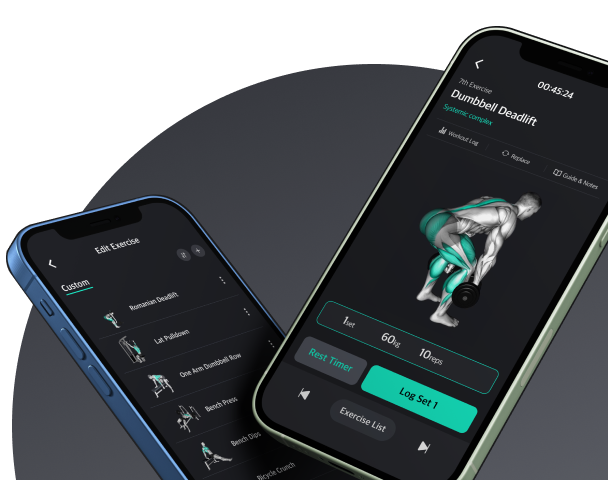Seated Knee Up vs Reverse Crunch
Maximizing Your Core Workout Plan
Feb 22, 2025Contents
Undecided between Side Leg Raise and Reverse Crunch for your core routine? Pondering which brings more to the table or when is the best time to add each for ultimate effectiveness?
Customize Your Core Workout: Explore the Benefits of Seated Knee Up and Reverse Crunch for Better Comparison.
Planfit Users' Choice about Seated Knee Up vs Reverse Crunch : Which is Better?
Based on randomly selected data from 1 million completed workouts, Planfit users seem to prefer Seated Knee Up with a total of 1477 compared to 244 for Reverse Crunch
However, this is just a matter of preference for the majority. If you are wondering which of the two exercises to do right away, please read the text below. Compare the pros and cons of each exercise and choose the one that suits you better to proceed with.
How to Seated Knee Up
Seated Knee Up muscles worked: Core
Form
- 1. Exhale and lift your right leg up towards your chest.
- 2. Keep your back straight and your core engaged.
- 3. Hold the top position for a few seconds.
- 4. Inhale and slowly lower your leg back down to the starting position.
- 5. Repeat with the left leg.
Coach's Comment
- 1. Make sure to keep your back straight and your core engaged throughout the entire movement.
- 2. Do not arch your back or strain your neck.
- 3. Do not lift your leg too high, as this can cause strain on your back.
- 4. If you feel any pain or discomfort, stop immediately.
If you want to know a detailed guide to Seated Knee Up, alternative exercises, and its benefits, check it out here. Check out the Seated Knee Up Guide page of our blog!
How to Reverse Crunch
Reverse Crunch muscles worked: Core
Form
- 1. Curl your hips off the floor by contracting your abdominal muscles and pressing your lower back into the floor.
- 2. Lift your legs up towards your chest as you curl your hips off the floor.
- 3. Slowly lower your legs back down to the starting position.
Coach's Comment
- 1. Make sure your back is kept flat on the floor and your neck is in line with your spine throughout the exercise.
- 2. Do not arch your back or lift your head off the floor.
- 3. Make sure to keep your legs together and your knees bent throughout the exercise.
- 4. Do not swing your legs when performing the exercise.
If you want to know a detailed guide to Reverse Crunch, alternative exercises, and its benefits, check it out here. Check out the Reverse Crunch Guide page of our blog!
Get free AI personalized workout plan
Choosing exercises that align with your goals and body type is as important as consistency in your workout regime. Its about smart training that targets your specific fitness aspirations.
To create a routine that incorporates the right exercises for you, explore our [workout generator] It’s a straightforward way to customize a workout plan to meet your unique needs and objectives, ensuring every effort contributes to your fitness journey.

